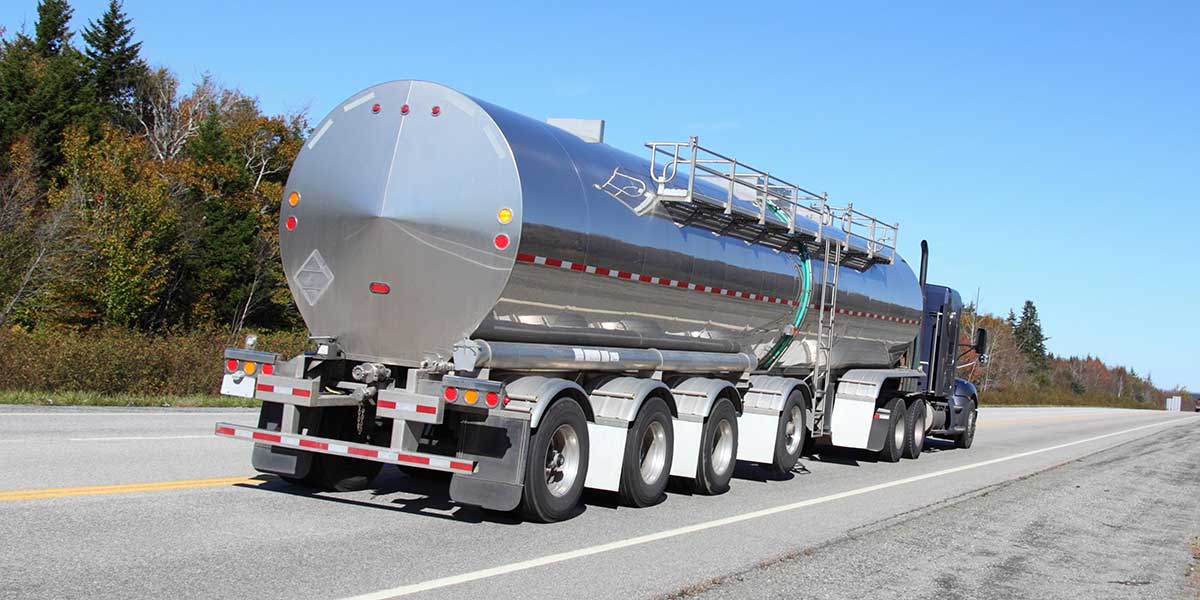Understanding FMCSA Rules for Hazmat Carriers

Transporting hazardous materials is a challenging but essential job for drivers and motor carrier companies. Maintaining the FMCSA compliance checklist for the multiple situations required under the hazardous materials regulations can be a challenge for commercial motor carriers.
Learn how the experts at FMCA Filings can help you maintain transportation compliance when doing this type of work.
Qualifications for Hazardous Materials
The Federal Motor Carrier Safety Administration (FMCSA) maintains a list of materials it considers hazardous. Such materials could cause harm to the environment, humans, or animals if released during an accident and may include:
- Combustible liquid
- Compressed gas
- Corrosive materials
- Explosives
- Flammable liquid
- Flammable solids
- Liquefied gas
- Organic peroxide
- Poisonous inhalation risk materials
- Radioactive materials
- Refrigerated gas
- Toxins and poisons
Other materials may also qualify as hazardous. For example, a substance that is environmentally hazardous or that carriers must transport at an unusual temperature for safety reasons could fit under the rules.
Maintaining Permits for Hazmat Transport
Carriers must maintain a hazardous materials permit to comply with FMCSA requirements for hazmat transports. To receive the permit, carriers must apply through the FMCSA Hazardous Materials Safety Permit Program, which governs interstate and intrastate transportation. The team at FMCA Filings can help you manage the requirements for this program.
After registering in the program and receiving the safety permit from the FMCSA, carriers can remain in compliance by:
- Maintaining a satisfactory safety rating
- Providing training for drivers
- Maintaining emergency response information
- Maintaining a good crash rating
Some of the training programs required for hazmat transportation align with the processes for obtaining DOT certifications.
Required Equipment and Markings on Vehicles
Trucks transporting hazardous materials require markings that identify the type of hazard on the truck. These placards use colors, symbols, and numbers to indicate the level of hazard for the material.
The signage must be visible from at least 50 feet away and should be displayed on all four sides of the truck. If the hazmat truck transport contains unusual hazardous material, the driver must display the material's four-digit United Nations number. This number allows first responders to look up specific information about the substance before safely treating the situation.
All trucks must carry an appropriate fire extinguisher for the materials onboard.
Safe Parking of Vehicles With Hazardous Materials
FMCSA regulations dictate where and how drivers can park their vehicles during a hazmat transport. Drivers cannot park their trucks on public streets or along highways unless they have no other option. If they must park in these areas, it must be for a brief period, drivers must be awake, and drivers must be within 100 feet of the truck with an unobstructed view of it.
Depending on the nature of the material, the FMCSA’s hazmat rules may require that the driver or another company representative be with the truck at all times, no matter where it's parked. Exceptions exist, but they depend on the amount of material being carried.
Requirements for Drivers Transporting Hazardous Materials
Among the FMCSA requirements for hazmat transportation are regulations that drivers must adhere to. Drivers must follow the basic rules for operating a commercial truck, including holding a commercial driver’s license (CDL) and maintaining compliance with drug and alcohol rules.
Additionally, hazmat drivers must carry an H endorsement on their CDLs. This special endorsement forces drivers to prove knowledge of the hazmat regulations through testing. FMCA Filings can ensure your drivers fit all the requirements for transporting hazardous materials.
Carrying Documentation and Shipping Papers
Drivers must carry shipping papers that show exactly what the truck is carrying. The shipper should provide drivers with the necessary papers. In case of a spill, the shippers’ documentation must include information, including:
- Risk to the environment
- Health hazards from exposure
- Risk of fire
- Risk of explosion
- First aid recommendations
- Firefighting recommendations
- Cleanup recommendations
- Exact material being carried
- Quantity of the material
Additionally, shippers must provide drivers with an emergency response telephone number in the event of a spill. If the documentation doesn’t include all the emergency response information required, it won’t meet the FMCSA regulations, and the trucking company could receive penalties.
FMCA Filings Offers Multiple Resources To Help You Stay in Compliance
Managing the FMCSA requirements for hazmat transports can be a challenge on your own. From driver training to managing your hazardous material safety permit, you must maintain impeccable records.
The experts at FMCA Filings specialize in helping motor carrier companies follow FMCSA regulations in all areas. We monitor changes in any rules that affect your operations and help you stay in compliance. To learn more about how we can help you, talk with our team via live chat.